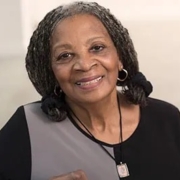Time and the Storyteller
 “A story is already over before we hear it. That is how the storyteller knows what it means.” -Joan Silber, The Art of Time in Fiction
“A story is already over before we hear it. That is how the storyteller knows what it means.” -Joan Silber, The Art of Time in Fiction
I hope I am not one of those people who says, “Everything happens for a reason.” As I once heard Barry Keating say, “God doesn’t send you hardship to build your character.”
Nevertheless, things happen, and sometimes character gets built. Sometimes things work out for the best. But knowing that isn’t necessarily helpful at the moment.
One of my daughters has had a setback, not getting into a program she had set her heart on. I’m reminded of other disappointments. Concert ticket scams fallen for. The right boy not making an appearance at the right time. Mom not giving in to a request for shoes that could change her life. Dropped ice cream cones.
I’m reminded of a boss who used to say, when his melodramatic young employees carried on over an upset, “And, Lo, she did not die.”
I’m reminded of a time one of my nephews, new at toddling, fell and bumped his head. When my brother-in-law got upset, my mother, the wise grandmother, said, “He’ll have lots of bumps and bruises in his little life.”
Which doesn’t mean you don’t keep an eye out for potential danger. Which doesn’t mean your heart doesn’t sink when your child is hurt, emotionally or physically.
One of the things I like about being a writer is that hindsight, which is 20-20, becomes a tool for storytelling. In life we don’t know, not yet, what will come of a missed opportunity. Later, in storytelling time (one might say), we do know.
It feels like a tragedy, just now. But no one has died. (No one even got bruised!) If you keep your eyes open–you’ll see other doors open.


 about Colleen, and to
about Colleen, and to 
